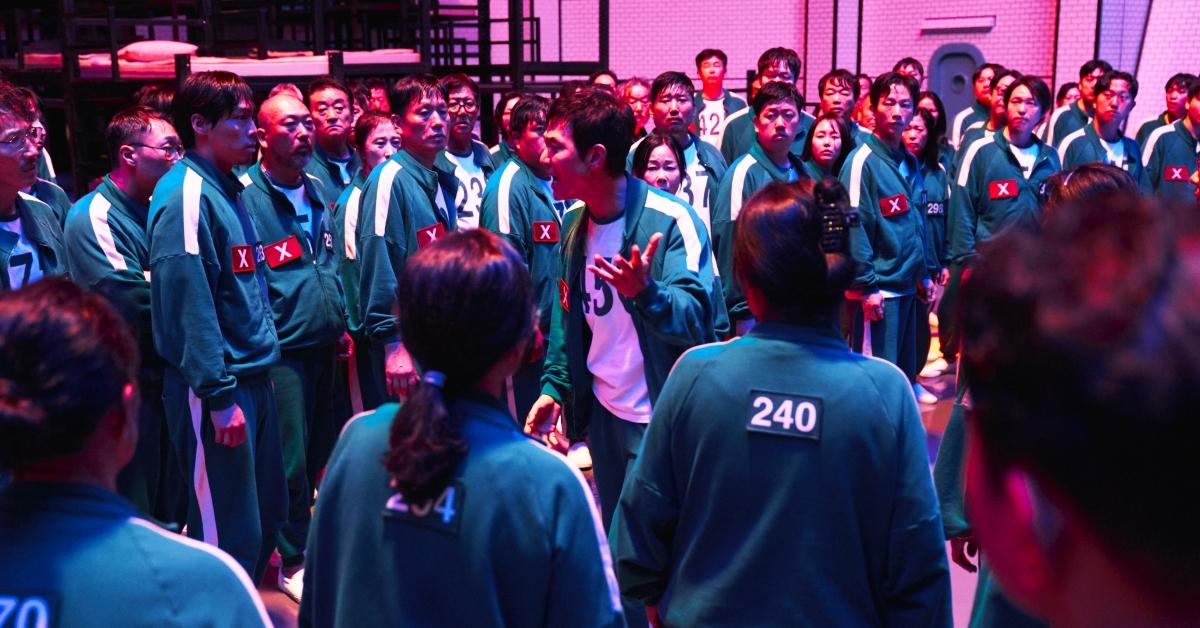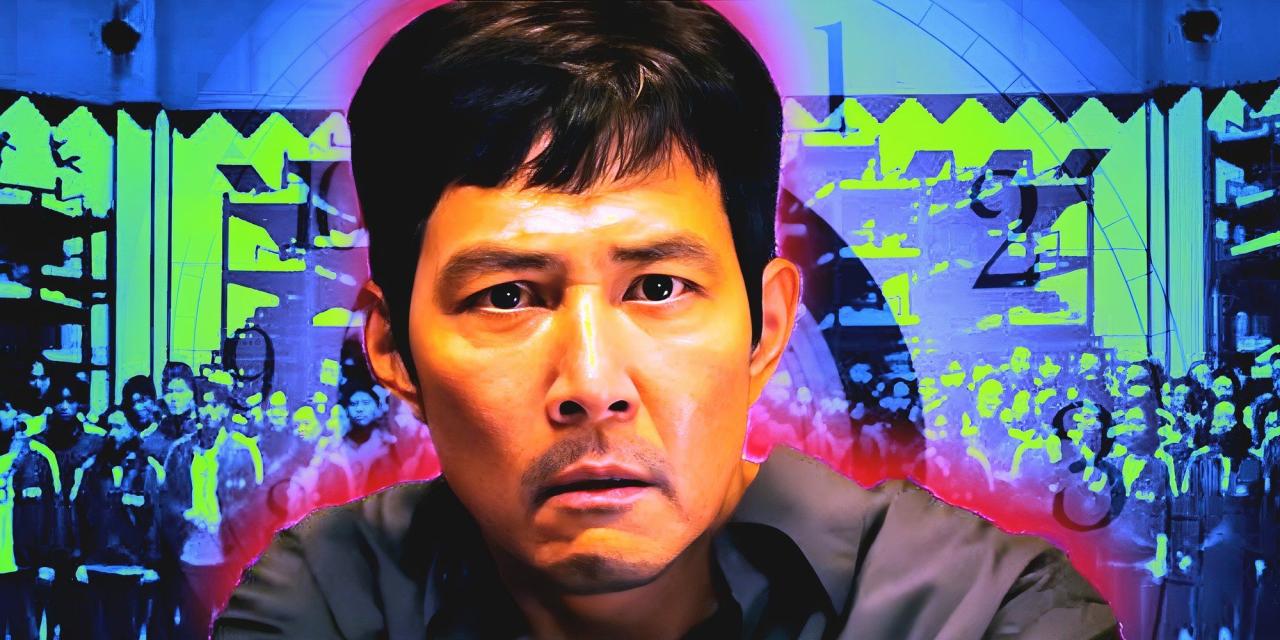Squid Game Histoire Vraie? The hit Netflix show wasn’t just a thrilling spectacle; it reflected harsh realities. This exploration delves into the socioeconomic pressures in South Korea, mirroring the desperation depicted in the series. We’ll examine the show’s powerful commentary on debt, inequality, and the psychological toll of a hyper-competitive society. Get ready to uncover the unsettling truths behind the games.
So you’re wondering about “Squid Game histoire vraie”? While the show’s fictional, its themes of desperation and inequality resonate with real-world struggles. Think about the pressure these players faced; it’s a far cry from the kind of pressure a team like Gonzaga faces, like when they’re traveling to a game on their gonzaga basketball plane. That’s a different kind of high-stakes situation, but both scenarios highlight the intense pressures individuals face in pursuit of their goals, reminding us of the brutal reality behind “Squid Game histoire vraie”.
We’ll dissect the show’s symbolism, analyzing how seemingly simple children’s games expose brutal realities. We’ll compare the show’s depiction of debt and societal pressures to real-life situations in South Korea, examining the psychological motivations of the players and the show’s impactful visual storytelling. Finally, we’ll discuss the global phenomenon of Squid Game and its lasting cultural impact.
The Socioeconomic Underpinnings of Squid Game
Squid Game’s shocking depiction of debt-driven desperation resonated globally, prompting reflection on the realities of socioeconomic pressures, particularly in South Korea. The show’s brutal games aren’t just entertainment; they’re a stark commentary on the intense financial struggles faced by many.
The Reality of Debt in South Korea, Squid game histoire vraie

South Korea’s high levels of household debt are a complex issue stemming from a confluence of factors. Aggressive lending practices, coupled with a culture prioritizing education and homeownership, have fueled a cycle of borrowing. The pressure to maintain a certain lifestyle and the societal emphasis on “success,” often equated with material possessions, contribute significantly to individual financial decisions. Many find themselves trapped in a debt spiral, with limited social safety nets.
Examples mirroring the Squid Game’s financial struggles are prevalent. The story of a small business owner burdened by loans, forced to choose between bankruptcy and desperate measures, reflects the pressure faced by countless Koreans. Similarly, stories of individuals taking out high-interest loans for education or housing, only to find themselves overwhelmed by repayments, resonate with the show’s themes.
Squid Game exaggerates the desperation, but the underlying financial pressures are undeniably real. While the show’s games are fictional, the desperation and the consequences of failing to meet financial obligations are sadly not.
Survival Games and Social Commentary
Squid Game masterfully uses seemingly innocent children’s games to expose the cutthroat nature of a hyper-competitive society. The simplicity of the games ironically contrasts with the life-or-death stakes, highlighting the brutal realities of a system where survival depends on outmaneuvering others.
The show’s commentary on class inequality is particularly potent. The stark contrast between the wealthy organizers and the impoverished players underscores the systemic injustices that perpetuate inequality. The games themselves symbolize the exploitation and manipulation inherent in a system that prioritizes profit over human life.
| Squid Game Game | Real-Life Parallel | Societal Issue Highlighted | Example |
|---|---|---|---|
| Red Light, Green Light | The relentless pressure to succeed in a highly competitive job market | Exploitation of workers, lack of job security | Gig economy workers facing precarious employment |
| Honeycomb | The pressure to conform to societal expectations and risk failure if one deviates | Societal pressure, fear of failure | Students facing immense pressure to achieve high academic results |
| Tug-of-War | Competition for limited resources and opportunities | Class inequality, lack of social mobility | Competition for university admissions or high-paying jobs |
| Marbles | Betrayal and manipulation in the pursuit of survival | Erosion of trust, social isolation | Financial scams targeting vulnerable individuals |
The Psychology of the Players

The players’ decisions are driven by a complex interplay of psychological factors. Survival is the primary motivator, but greed, desperation, and the hope for a better future also play significant roles. The organizers employ psychological manipulation, exploiting the players’ vulnerabilities and desperation to maintain control and heighten the drama.
So, you’re curious about “Squid Game histoire vraie”? While the show’s fictional, its themes of desperation and inequality resonate with real-world struggles. Think about the scale of societal pressure – it’s a bit like the spectacle of the shanghai drone show 2049 , a breathtaking display of technology, but also a symbol of massive resource allocation.
The contrast highlights how “Squid Game” taps into anxieties about wealth disparity and the lengths people might go to escape poverty.
Each character’s background and personality shape their responses to the high-stakes environment. Some prioritize collaboration, others succumb to self-preservation, and some embrace ruthless pragmatism. These diverse responses reflect the complexity of human nature under extreme pressure.
So you’re wondering about “squid game histoire vraie,” right? The show’s brutal games definitely sparked debate about whether it’s based on real-life events. To dive deeper into the truth behind the inspiration, check out this insightful article: squid game histoire vraie. It explores the show’s connection to Korean history and societal issues, offering a clearer picture of “squid game histoire vraie.” Ultimately, understanding its roots adds another layer to appreciating the show’s impact.
Visual Storytelling and the Show’s Impact
Squid Game’s visual style is a crucial element of its impact. The stark contrast between the vibrant, almost childish colors of the games and the grim, gritty reality of the players’ lives is visually striking. The use of saturated colors in the games intensifies their artificiality, highlighting the disconnect between the playful facade and the deadly consequences.
The show’s most impactful scenes are those that juxtapose the brutal violence of the games with moments of unexpected humanity or vulnerability. The use of close-ups, slow-motion, and specific camera angles enhances the emotional impact, drawing the viewer into the players’ experiences. The show’s visual style is reminiscent of other works exploring dystopian themes, but its unique color palette and stylized violence set it apart.
Imagine a visual representation: A split screen. One side, bathed in bright, almost neon colors, depicts a childlike game – perhaps a close-up of a Dalgona candy. The other side is a muted, desaturated grey, showing a character’s desperate face, etched with lines of worry and exhaustion. This stark contrast visually represents the core tension of the show: the juxtaposition of innocent games and brutal realities.
Global Reception and Cultural Impact
Squid Game’s global success is undeniable. Its influence extends beyond entertainment, impacting fashion, popular culture, and social media trends. The show’s diverse interpretations reflect its multifaceted themes, sparking discussions on social inequality, human nature, and the consequences of unchecked capitalism.
While generally well-received globally, the show’s reception varies across different cultural contexts. Some viewers found the violence gratuitous, while others praised its unflinching portrayal of social issues. These diverse reactions highlight the show’s capacity to provoke thought and conversation on a global scale.
Last Recap

Squid Game Histoire Vraie ultimately reveals a disturbing truth: the show’s fictional games are a chilling reflection of real-world struggles. While exaggerated for dramatic effect, the underlying themes of debt, inequality, and the desperation for survival resonate deeply with audiences worldwide. The show’s enduring popularity serves as a stark reminder of the societal issues that need addressing, prompting crucial conversations about economic disparity and the human cost of unchecked competition.
Detailed FAQs: Squid Game Histoire Vraie
Was Squid Game inspired by a true story?
No, Squid Game isn’t based on a single true story. However, it draws inspiration from real-world socioeconomic issues in South Korea, particularly concerning high levels of debt and societal pressures.
How accurate is the portrayal of debt in South Korea?
While exaggerated for dramatic effect, the show accurately reflects the significant debt burden faced by many South Koreans. The pressure to succeed and the consequences of financial hardship are realistically depicted.
What is the show’s main message?
Squid Game critiques societal inequality, the desperation born from economic hardship, and the dehumanizing effects of unchecked competition. It forces viewers to confront uncomfortable truths about our systems.
Did the show’s popularity lead to any real-world changes?
While no direct policy changes can be solely attributed to Squid Game, its immense popularity sparked global conversations about economic inequality and the need for social reform.
